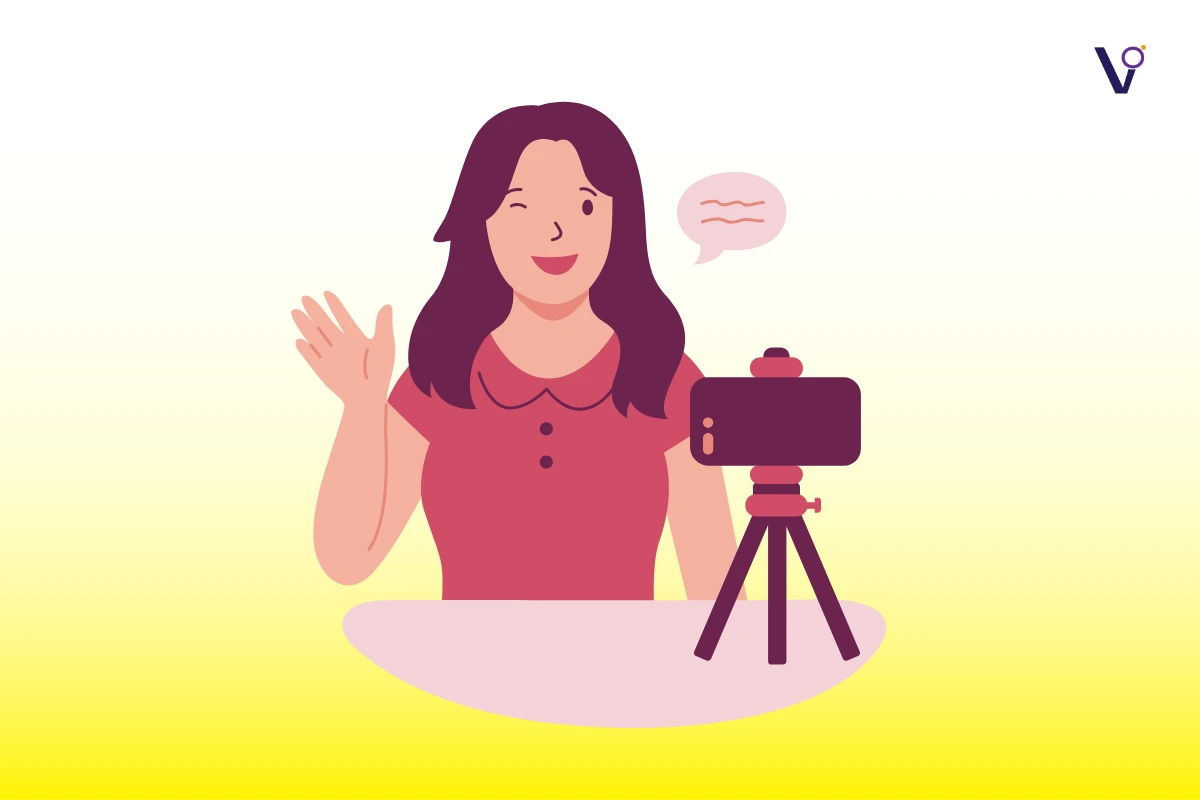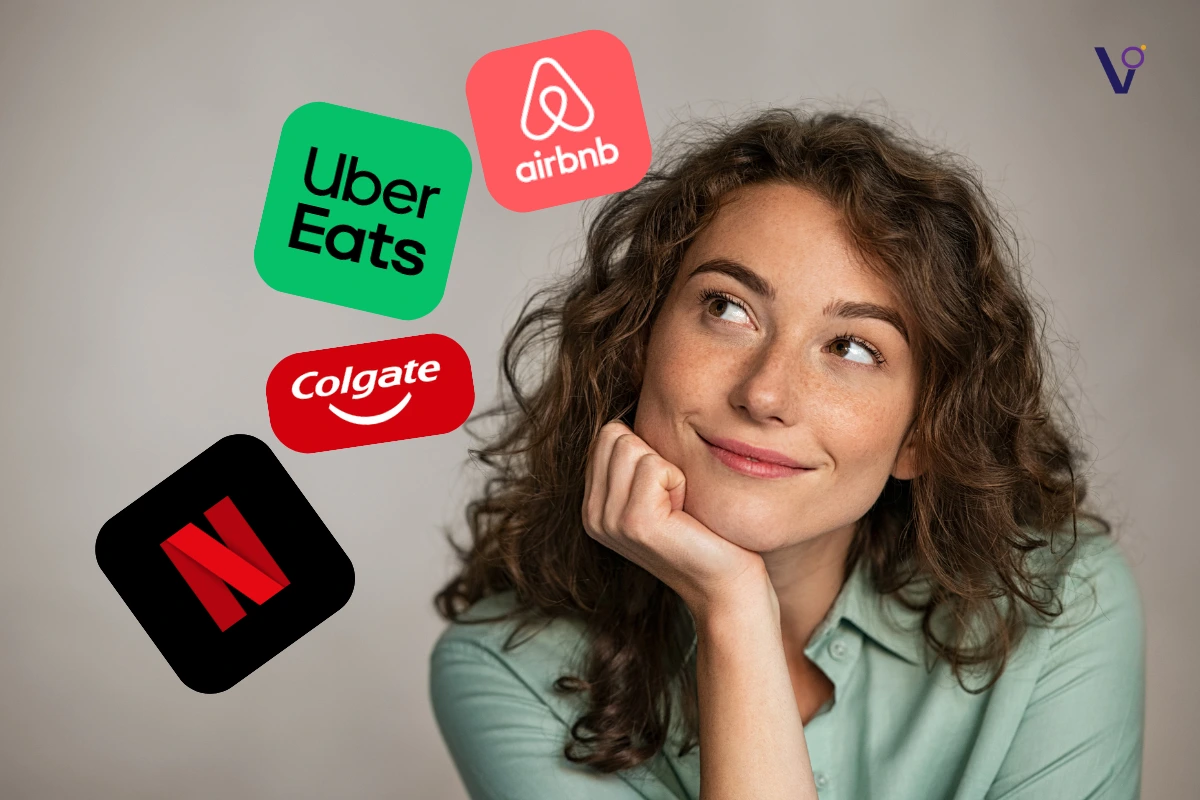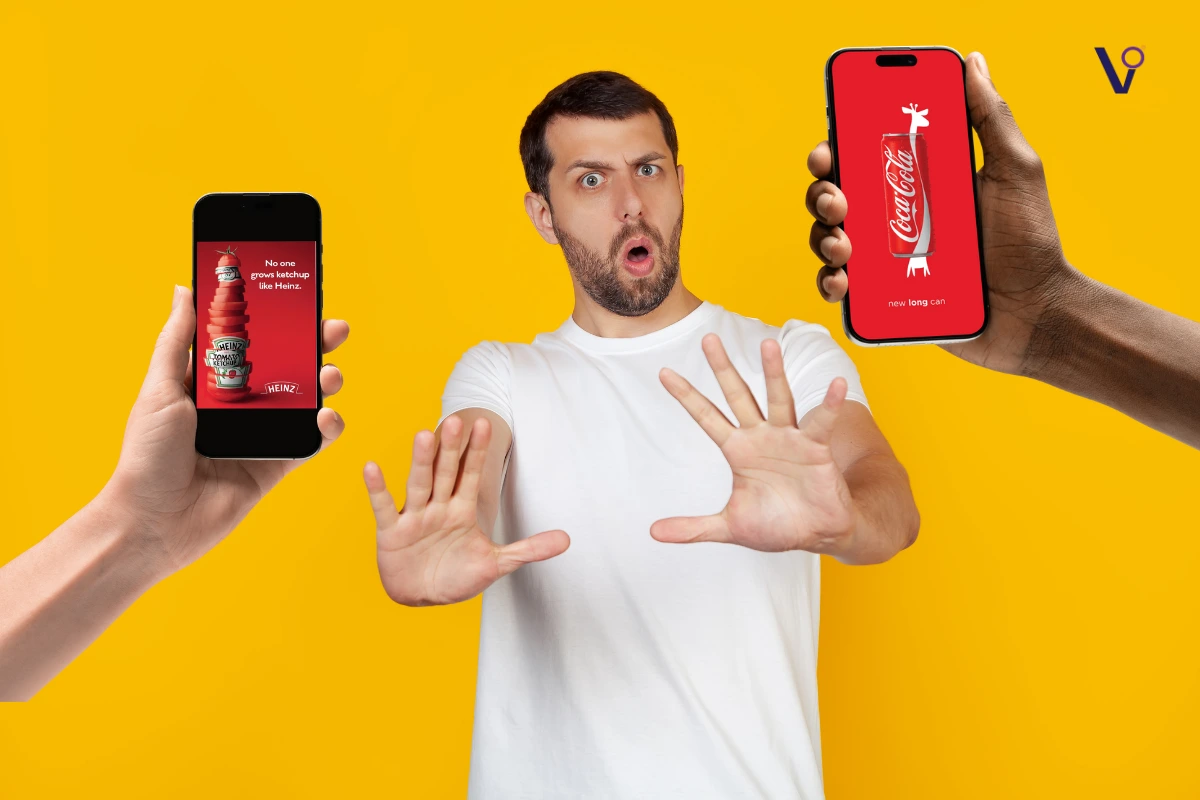We’ve all seen her — that girl popping up on your reels, breaking down marketing ideas with a voice so confident, you can’t help but listen. But here’s the twist — she isn’t real. Welcome to the world of AI influencer marketing.

Avani, the face of @odd.mktg, is an AI influencer. She’s not a person but a carefully crafted digital persona who’s killing it on Instagram. With over 368K followers and a consistent flow of viral videos, she’s proof that the influencer game is changing. And guess what? You can do this too.
At ViralOmega, we studied how Avani works, what makes her content so powerful, and how you can replicate her success for your own brand.
Who is Avani from @odd.mktg?
Avani is entirely AI-generated. Her face, voice, expressions — everything is created using AI tools. The only human part of her content? Pressing “post.” But that hasn’t stopped her from becoming one of the most engaging and influential voices in the marketing space.
Her followers don’t care that she’s AI. They care that her content feels real, relatable, and valuable. That’s the magic. Her creators figured out how to use AI in a way that feels authentic, and that’s what we’re here to help you do.
What Makes AI Influencer Marketing So Effective?
We watched all her videos. Every single one. Here’s what stood out:
1. Powerful Hooks Right at the Start
Avani never begins with “Hey guys” or “Today we’ll talk about…” She starts strong, grabbing your attention in the first 3 seconds. Examples include:
- “MrBeast made $250 million from a chocolate bar. Here’s how”
- “This guy named his luxury brand Fake and launched it on NYC’s most notorious street for counterfeits. Now it’s worth millions.”
These opening lines are scroll-stoppers — and that’s exactly the point.
2. Storytelling, Not Lecturing
Her content flows like a story. Each video follows a structure:
- A relatable problem
- What went wrong
- An unexpected twist
- A smart takeaway
From fake luxury brands to $250M chocolate bars, she breaks down how brands win online. That’s why people stay and listen.
3. Short, Snackable, Binge-Worthy Videos
Her reels are usually under 60 seconds, but they leave an impact. They deliver just the right amount of surprise and curiosity to keep people watching more. It’s content built to binge.
How Can You Create an AI Influencer?
Here’s a step-by-step breakdown so you can build your own AI influencer and start creating viral content that works.
Step 1: Write a Strong Script
Use a structure that mirrors Avani’s:
- Hook → Problem → Twist → Lesson
Write in a casual, conversational tone. Avoid robotic or overly formal language. Imagine explaining something smart to a friend who’s curious but busy.
Step 2: Create Your AI Face
Use Focus—an open-source AI tool—to generate a custom digital face. Choose features, backgrounds, and expressions that feel on-brand.
Then use FaceSwap AI to maintain consistency across different poses and videos.
Step 3: Generate the Video
Use tools like HeyGen or Synthesia. These platforms allow you to:
- Select or upload a human-like avatar
- Paste your script
- Choose voice tone, language, and emotion
- Generate a complete lip-synced video in minutes
It’s fast, easy, and scalable.
Step 4: Edit Like a Pro
Use CapCut or Descript to:
- Add subtitles
- Insert background music
- Use zoom-ins and transitions
- Highlight key words
This editing polish makes the video dynamic, sharp, and reel-friendly.
Step 5: Post Strategically
Your AI influencer is ready — now it’s time to go live.
Post at the right times, use trending hashtags, and keep your content coming regularly. Cross-post on platforms like TikTok, Threads, or Pinterest to boost reach.
Monetizing AI Influencer Marketing for Your Brand
AI influencers like Avani aren’t just internet experiments —they’re effective brand assets that can drive real results when used strategically. If your AI content is already attracting views, the next step is conversion: How can you turn this attention into actual revenue?
Let’s break AI influencer marketing down:
1. Redirect Attention to Your Brand Ecosystem
Use your AI influencer to lead audiences toward your core business goals. This could mean:
- Driving traffic to your product pages
- Promoting webinars, courses, or lead magnets
- Collecting email subscribers
- Sharing limited-time offers or launches
Instead of vague CTAs, anchor every piece of content with a specific next step that aligns with your brand objectives.
2. Offer Tiered Value Through Membership Platforms
If your AI influencer has built trust and engagement, you can offer additional content or perks through platforms like:
- Patreon – for exclusive industry breakdowns, tutorials, or Q&As
- Ko-fi – for one-time downloads, toolkits, or shoutouts
- Fanview – for behind-the-scenes reels or brand storytelling
This model works well for SaaS brands, educators, consultants, and creators who want to build a recurring revenue stream.
3. Use the AI Influencer as a Brand Educator
Not every reel needs to sell. Some of the most effective monetization comes from educating your audience. Teach them how your product solves a problem. Break down complex features. Share use cases.
The more value your AI persona gives, the more trust it builds — which directly impacts conversions.
4. Collaborate with Complementary Brands
You don’t need to limit your AI influencer to in-house content. Just like human influencers, virtual personas can participate in:
- Paid partnerships
- Affiliate marketing
- Product launches with aligned brands
The difference? You control the narrative, the branding, and the voice — consistently.
5. Scale Without Scaling Cost
Perhaps the biggest monetization advantage: AI influencers are low-cost and high-output. Once set up, they require minimal ongoing investment. There’s no studio cost, no talent fee, no re-shoots.
This makes them perfect for:
- Startups with limited budgets
- Agencies managing multiple client accounts
- Brands testing content in different niches or formats
Why AI Influencers Are Gaining Ground
They work because they simplify three critical content pillars:
- Human-like visuals that connect
- Relatable storytelling that retains attention
- Real value that earns trust
It’s not about being real — it’s about being useful and consistent. That’s where AI stands out.
Top brands like Prada, Calvin Klein, Samsung, and Zara have used AI influencers in campaigns to stay innovative and connect with younger, tech-savvy audiences.
Strong hooks, story-driven structure, conversational tone, and short, binge-worthy videos make AI influencer content highly engaging and shareable.
Yes, brands can build AI influencers from scratch using tools like Focus, FaceSwap AI, Synthesia, and CapCut—combined with strategic scripts and consistent posting.



